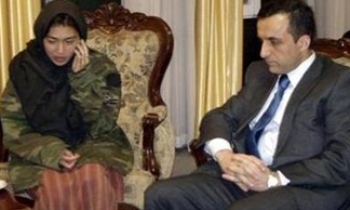Kenyan President Mwai Kibaki has rejected a bill that would have forced editors to name their sources if their stories led to court cases.
Kibaki declined to sign Kenya’s Media Bill after calling an amendment within it “a great inhibition of press freedom†that could “undermine the [country’s] democratic strides,†according to an official statement posted on the website of Kenya’s State House.
Kibaki, standing for re-election at presidential elections in December, had also called on Kenya’s Parliament to delete the clause. It would require a 65 per cent majority to overrule Kibaki, according to news reports.
The move came a week after hundreds of journalists held an unprecedented protest march in the streets of the capital Nairobi amid a wave of local and international outcry. In a show of defiance, journalists attended last week’s government spokesman’s briefing gagged and mute, the Committee to Protect Journalists (CPJ) reported quoting local press reports.
“We welcome President Kibaki’s move to scrap this restrictive legislation which stood to undermine the ability of Kenyan journalists to do their jobs freely,†said CPJ Executive Director Joel Simon. “We urge authorities to uphold the rights of the press to freely cover the upcoming national elections.â€
“By refusing to give his assent to this law, President Kibaki has shown a real desire to defend the press freedom that has been achieved in Kenya,†Reporters sans Frontières (RSF) said. “The confidentiality of sources is an essential principle. The law must now be revised and liberalised, and we hope the result will be more in line with international standards.â€
“We applaud President Kibaki’s decision, which acknowledges that protection of confidential sources is a cornerstone of press freedom. This is a major victory for journalists and press freedom in Kenya†said Gabriel Baglo, Director of the International Federation of Journalists (IFJ) Africa office. “We call on the Parliament to remove the clause from the media bill.â€
Shortly following the move, Information Minister Mutahi Kagwe announced the government was withdrawing another media bill for redrafting. The Kenya Communication Bill contained restrictions on media ownership and provisions granting the government sweeping powers of search and seizure without judicial or parliamentary approval on suspicions of threats to national security, according to local journalists. In recent years, Kenya’s lively press successfully defeated several governmental attempts to introduce repressive legislation, according to CPJ research.
Authorities had yet to amend archaic criminal laws on defamation matters despite a stated January 2005 government moratorium on such prosecutions, Nairobi lawyer Paul Mwangi told CPJ. In a private criminal libel prosecution this year, a journalist was jailed for three months .









